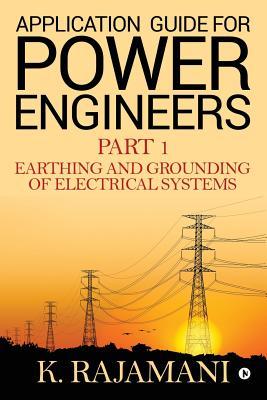"Sound earthing & grounding of the electrical installation is the fundamental requirement for safe and reliable operation. There is a lot of misconception among practicing engineers (both design and field) on this topic. Study of this application guide will bring clarity to the reader on this topic.
Earthing methods for different applications like EHV Switchyard, MV and LV systems and earthing application to special areas like Solar farms, GIS terminations, C&I (Control & Instrumentation) systems in power and industrial plants are covered. Remarks on mis-interpretation of IE rules are made.
The reader will understand why different grounding methods are adopted at different voltage levels. Relationship between Grounding and Transformer Ampere Turns Balance theory is clearly brought out which is the cornerstone of grounding exercise. Features of ungrounded and grounded systems are covered in detail including demystification of zig zag connection. Ready to use spread sheets for sizing of NGT/NGR are given.
Supported by copious illustrations from field experience, fundamental concepts of grounding are explained by solving problems of gradually increasing complexity.
Various practices adopted for Neutral grounding of generator are described.
Students will tremendously benefit by studying this guide as it combines theory with lot of practical examples. He/She will acquire the necessary skills upfront needed by industry.
The design engineer or consultants will find the guide very useful to perform optimum design.
Origin of many nuisance tripping or power quality issues is poor earthing/grounding. The practicing and field engineers will be able to address many of the problems encountered at site due to faulty earthing and grounding

Application Guide for Power Engineers: Earthing and Grounding of Electrical Systems
"Sound earthing & grounding of the electrical installation is the fundamental requirement for safe and reliable operation. There is a lot of misconception among practicing engineers (both design and field) on this topic. Study of this application guide will bring clarity to the reader on this topic.
Earthing methods for different applications like EHV Switchyard, MV and LV systems and earthing application to special areas like Solar farms, GIS terminations, C&I (Control & Instrumentation) systems in power and industrial plants are covered. Remarks on mis-interpretation of IE rules are made.
The reader will understand why different grounding methods are adopted at different voltage levels. Relationship between Grounding and Transformer Ampere Turns Balance theory is clearly brought out which is the cornerstone of grounding exercise. Features of ungrounded and grounded systems are covered in detail including demystification of zig zag connection. Ready to use spread sheets for sizing of NGT/NGR are given.
Supported by copious illustrations from field experience, fundamental concepts of grounding are explained by solving problems of gradually increasing complexity.
Various practices adopted for Neutral grounding of generator are described.
Students will tremendously benefit by studying this guide as it combines theory with lot of practical examples. He/She will acquire the necessary skills upfront needed by industry.
The design engineer or consultants will find the guide very useful to perform optimum design.
Origin of many nuisance tripping or power quality issues is poor earthing/grounding. The practicing and field engineers will be able to address many of the problems encountered at site due to faulty earthing and grounding